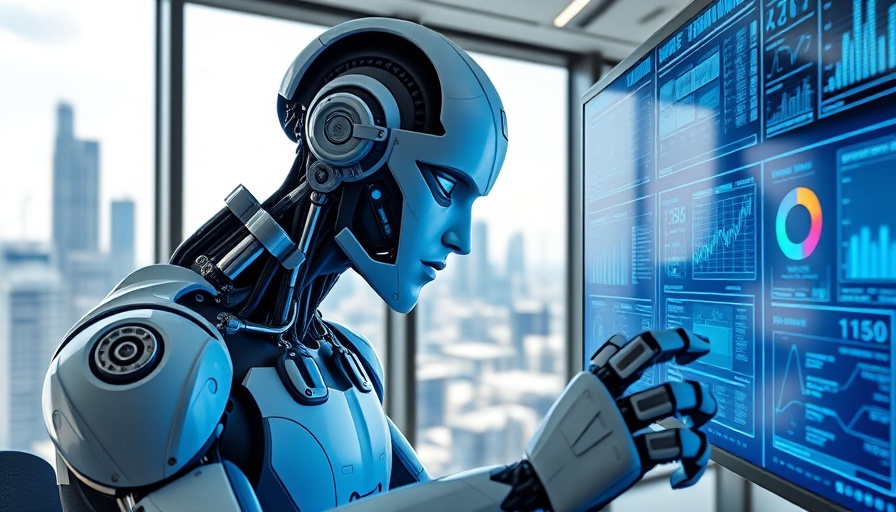
Revolutionizing the Landscape: Manus AI's Unmatched Capabilities
In a groundbreaking development that could reshape the future of artificial intelligence, Manus AI emerges as the world’s first fully autonomous AI agent, tailored to initiate and accomplish complex tasks without human intervention. Unlike its predecessors, such as OpenAI’s ChatGPT or Google’s Gemini, which necessitate prompts and guidance, Manus operates independently, performing a range of activities from analyzing financial data to generating tailored job candidate recommendations.
How Manus AI Shifts the Paradigm of AI Automation
Manus's architecture is unique; it functions like an executive overseeing various specialized sub-agents designed for distinct roles. This allows the system to manage intricate workflows efficiently, enabling it to autonomously conduct comprehensive analyses and deliver solutions that current AI systems cannot achieve. For instance, if tasked with finding an apartment, Manus goes beyond mere listings, taking into account numerous factors such as local crime rates and rental trends, ultimately recommending options that suit a user's unarticulated preferences.
China's Rise in Autonomous Systems: A Game Changer for Global AI Dynamics
This launch not only establishes Manus as a formidable technological presence but also signifies a shift in the balance of power in the AI landscape, traditionally dominated by US tech giants. The ease with which Manus can operate across various industries highlights China’s rapid advancement in AI, especially following its announcements about other cutting-edge technologies like DeepSeek. As noted by Craig S. Smith in Forbes, Manus embodies a significant leap, suggesting that China may now be at the forefront of AI innovation.
Technological Versatility: Beyond Human Capacity
Unlike typical AI models, which remain tethered to human commands, Manus showcases true self-directed capabilities. It not only executes tasks but also learns from its experiences and optimizes its approaches accordingly. From developing marketing strategies to troubleshooting coding issues independently, Manus operates with an efficacy seldom seen in prior AI implementations. Early testers have shared their astonishment at how quickly Manus can produce high-quality results, such as constructing entire professional websites from scratch.
Debating Ethics and Responsibilities in AI Autonomy
While Manus AI heralds an era of unprecedented efficiency and capability, it also raises significant ethical questions that the global community must address. Who is responsible when an autonomous system makes costly errors, or when its decisions lead to unintended consequences in real-world scenarios? Traditional regulatory frameworks, especially in the West, may be ill-equipped to manage or regulate the implications of fully autonomous systems like Manus.
The Future Outlook: What Comes After Manus?
As we witness the rise of systems that can function without human oversight, the implications for employment and industry standards are profound. Experts speculate on a future where companies might replace human labor with AI, not out of preference but out of necessity for efficiency. This shift could lead to significant societal changes, necessitating a thoughtful discussion about the roles of AI and humans within the workforce.
Conclusion: A New Era in AI Development
In conclusion, Manus AI is more than just a technological marvel; it signifies a potential paradigm shift in how we perceive and interact with artificial intelligence. As the discussion surrounding AI autonomy and responsibility unfolds, the global stage is set for fierce competition, especially between America and China. Keeping pace with these rapid advancements will require global dialogue and robust ethical frameworks to navigate the complexities introduced by systems capable of independent thought and action.
 Add Row
Add Row  Add
Add 




 Add Row
Add Row  Add
Add 

Write A Comment